Police probe background of Germany van attacker
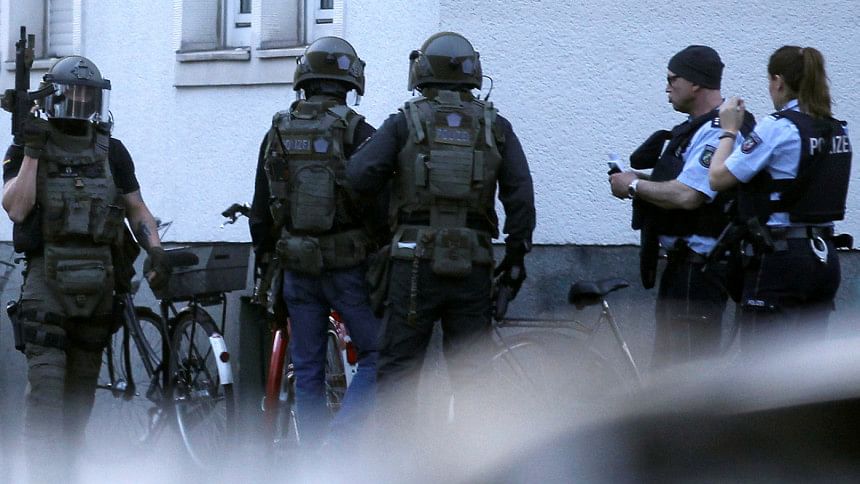
German police were scrambling in the early hours of Sunday to understand the motives of a man who drove a van into a crowd at an open-air restaurant, killing two people before shooting himself.
It was not clear whether he hoped to commit a so-called "murder-suicide" or had political motivations.
But authorities appeared near-certain that there was no Islamist connection to the violence in the historic centre of Muenster.
As well as the dead, police said 20 were injured -- six of them seriously -- amid the broken and upturned tables and chairs seen strewn across the pavement in images of the scene.
Germany has been on especially high alert for such terrorist attacks after several claimed by the Islamic State group.
The worst of those saw a Tunisian asylum seeker ram a truck into crowds at a Berlin Christmas market in December 2016, killing 12.
In the Saturday afternoon attack, inflicted as locals and tourists enjoyed a sunny spring day, there was "no indication at the moment that there is any Islamist connection," said North Rhine-Westphalia state interior minister Herbert Reul.
- Psychological problems -
While stressing that the investigation was still ongoing, Reul said the perpetrator was believed to be a German citizen "and not, as has been claimed everywhere, a refugee or something like that".
Media reports said the driver, identified only as Jens R., had a history of mental health problems.
Public broadcaster ZDF said the man had recently attempted suicide while rolling news channel NTV said he had spoken of a desire to bring as much attention as possible to his death.
ZDF also reported that he had possible links with far-right movements.
News website Spiegel Online reported that Jens R. lived in Muenster and police had found an assault weapon at his flat.
Police in the university city of 300,000 did not immediately confirm the reports.
They said that "a potentially suspicious object" had been found in the vehicle that might possibly be an explosive, and experts had been called in to deactivate it.
"There was a bang and then screaming. The police arrived and got everyone out of here," an employee of the restaurant hit by the terrace told NTV.
"There were a lot of people screaming. I'm angry -- it's cowardly to do something like this."
Armed police cordoned off a wide area around the scene of the attack, urging residents to avoid the city centre to allow investigators to get to work amid initial fears the country had suffered another extremist assault.
- 'Deeply shaken' -
Chancellor Angela Merkel said she was "deeply shaken" by the incident and "everything possible will be done to determine what was behind this act and to help the victims".
The presidents of Russia and France, Vladimir Putin and Emmanuel Macron, each sent their condolences.
The attack is the latest in a string across Europe in which vehicles have been used to attack crowds of people in public places.
In the Berlin Christmas market attack, Tunisian asylum-seeker Anis Amri hijacked a truck and murdered its Polish driver before killing another 11 people and wounding dozens more by ploughing the heavy vehicle through the festive market in central Berlin.
He was shot dead by Italian police in Milan four days later while on the run.
In France, IS claimed a 2016 truck attack in Nice on its July 14 national holiday that killed 86.
And in Spain, the jihadists also claimed a rampage along Barcelona's Las Ramblas boulevard in August 2017 that killed 14 and left more than 100 injured.
Like other European nations, Germany remains a target for jihadist groups, in particular because of its involvement in the coalition fighting IS in Iraq and Syria, and its deployment in Afghanistan since 2001.
A court last month sentenced a man to life in prison for killing one and wounding six others with a knife in a Hamburg supermarket out of a "jihadist" motive last July.
IS also claimed responsibility for a number of attacks in 2016, including the murder of a teenager in Hamburg, a suicide bombing in the southern city of Ansbach that wounded 15, and an axe attack on a train in Bavaria that left five injured.
Germany's security services estimate there are around 10,000 Islamic radicals in Germany, some 1,600 of whom are suspected of being potentially violent.
Political opponents of Chancellor Angela Merkel have charged that the security situation has worsened with the arrival of more than one million migrants and refugees since 2015, many from African and Middle Eastern conflict hotspots.

 For all latest news, follow The Daily Star's Google News channel.
For all latest news, follow The Daily Star's Google News channel. 

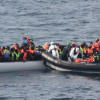
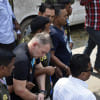
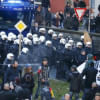
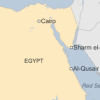



Comments